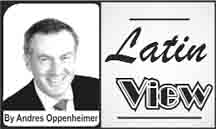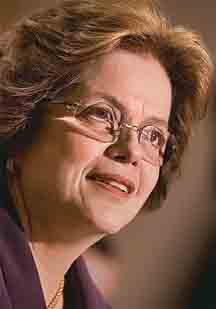BRASILIA — While waiting at the Miami airport for my flight to Brazil one day last week, I read a press report that Brazil’s tourism minister was illegally using a government driver as his wife’s private chauffeur. By the time I arrived in Brasilia seven hours later, the minister had already been sacked.
What a difference with what is happening in many other Latin American countries, and with what was happening in Brazil until recently.

We’re not talking of multi-million dollar deposits of government funds into private offshore accounts, like the ones that are periodically reported by independent media in Argentina, Bolivia, Ecuador and Venezuela, but with little or no legal consequences. In Brazil, Rousseff seems to have little patience with even the appearance of government corruption.
Former tourism minister Pedro Novais was forced to present his resignation only hours after the daily Folha de Sao Paulo reported that he was using a congressional employee as his wife’s driver.
The daily had reported previously that Novais’ house maid’s salary had been paid by Congress between 2003 and 2010. In addition, there had been opposition calls for the former minister’s resignation since last month, after police arrested 38 people, including the No 2 tourism ministry official, on corruption charges.
Before Novais’ forced departure, Rouseff had fired her chief minister, Antonio Palocci, whose sudden wealth had been the focus of several media investigations, as well as former agriculture minister Wagner Rossi and former transportation minister Alfredo Nascimento, amid corruption-linked political scandals.

The president’s crusade is helping her maintain a relatively high 49 per cent popularity rate, and is fuelling speculation that it is creating a wedge between her and her mentor, former president Luiz Inacio Lula da Silva. Several of the fired ministers had worked for Lula da Silva’s government.
While Lula da Silva remains widely popular, and is rumoured to want to run for office in 2014, many are beginning to wonder why the former president didn’t look into corruption allegations against the deposed officials and others when he was in office.
What’s most interesting is that Rousseff is acting on corruption accusations made by the media, rather than waiting for the results of judicial probes.
While governments in neighbouring countries routinely accuse independent media of being politically motivated and anti-patriotic when they report government-related corruption cases, Rousseff takes credible press reports seriously, and acts on them.
“It’s the press that is doing the inquiries. The president is simply reacting,” said Folha de Sao Paulo political commentator Fernando Rodriguez.
It’s exactly the opposite of what’s happening in some of Brazil’s neighbouring countries.
In Ecuador, President Correa lashed out against independent media after they reported that his brother, Fabricio Correa, had signed contracts worth more than $300 million with his government.
Even after his brother confirmed the business deals, the president called a national referendum to control the media, charging that public opinion has been “kidnapped” by “criminal” media companies.
In Argentina, there are daily headlines about the misappropriation of part of $160 million given by President Cristina Fernandez de Kirchner’s government to the Madres de Plaza de Mayo human rights group for a housing construction plan, but the government is blaming the private media, rather than looking into whether officials were involved in any wrongdoing.
And that’s just the latest of a long list of political scandals that have been reported in Argentina, most of which never lead to any firings of government officials.
In Venezuela, President Hugo Chavez’ s government has been reported to misappropriate billions of dollars — some of which ended in private offshore bank accounts, while smaller amounts were seized in cash-filled suitcases in foreign airports — without any official reaction.
My conclusion: One can make the argument that everybody is innocent until proven guilty, and that Rousseff may be acting too fast when she fires her ministers when they can’t give her convincing explanations to corruption charges in the media.
But that’s better than what’s happening in other countries, where presidents look the other way, and help create an anything-goes culture that breeds even more corruption. Instead of accusing the media, the latter should follow Rousseff’s example and get rid of crooked government officials.
© The Miami Herald, 2011. Distributed by Knight Ridder/Tribune Media Services.





